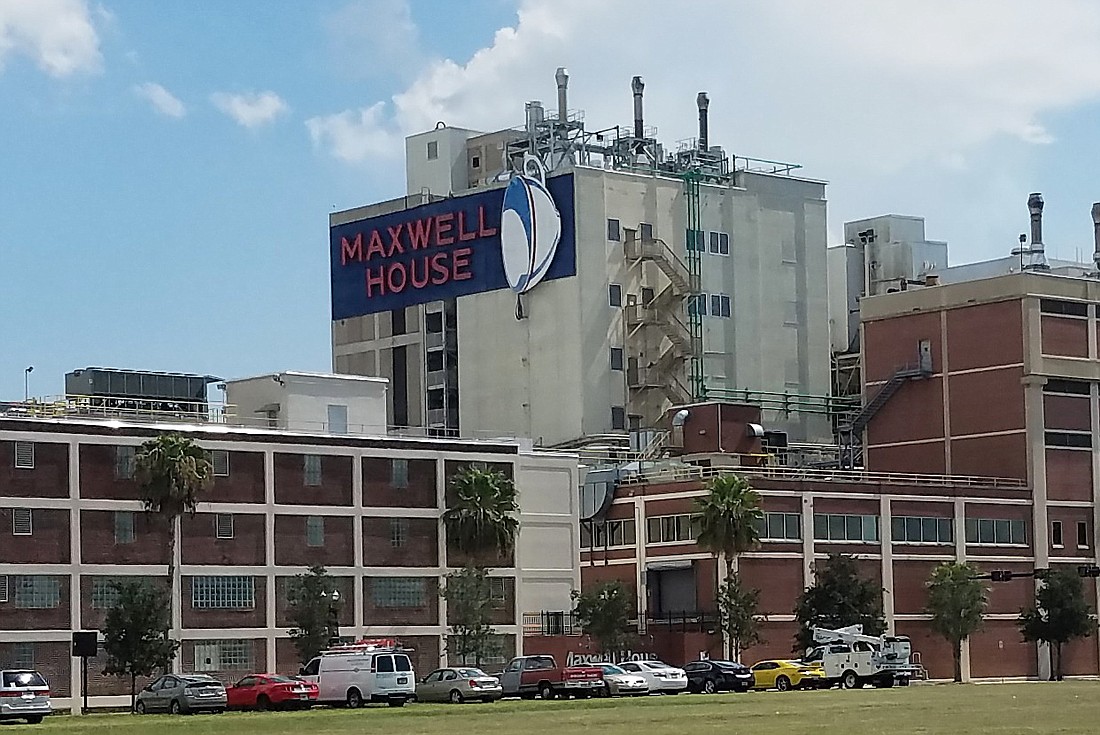
In the wake of a disastrous fourth-quarter financial report, Kraft Heinz Co. may sell its Maxwell House coffee business, which includes an iconic Downtown Jacksonville plant, according to a news report.
The century-old facility at 735 E. Bay St., which employs about 200, is Maxwell House’s last remaining U.S. coffee plant.
CNBC reported Sunday, citing unnamed sources, that Kraft Heinz retained investment banker Credit Suisse to review options for Maxwell House including a potential sale as the company restructures its business.
The CNBC story followed Kraft Heinz’s report Thursday that it lost $12.6 billion in the fourth quarter because of a noncash charge related to valuations of certain assets, including its Kraft and Oscar Meyer brands.
Kraft Heinz also disclosed in its quarterly report that the Securities and Exchange Commission is investigating the company’s accounting policies, procedures, and internal controls related to procurement.
That late Thursday report sent Kraft Heinz’s stock down $13.23 to $34.95 on Friday.
Kraft Heinz does not report financial data for individual brands, but CNBC said Maxwell House generates about $400 million a year in earnings before interest, taxes, depreciation and amortization, citing “people familiar with the matter.”
CNBC said those people speculated a sale could be worth $3 billion.
A Kraft Heinz spokesman said Monday the company does not comment on “rumors or speculation.”
The Jacksonville plant opened in 1924, replacing another coffee plant across Bay Street that had opened in 1910.
The plant became known for its illuminated coffee cup sign that was installed in 1955, and for the smell of coffee that permeated the Downtown area on windy days.
The plant also became a symbol of the city's commitment to manufacturing jobs in 1990 when Maxwell House decided to close one of its two East Coast plants.
City business and political leaders started a “Keep Max in Jax” campaign to demonstrate its commitment, and Maxwell House instead closed its plant in Hoboken, New Jersey.
Maxwell House sold off a plant in Houston in 2006 and closed its last other U.S. facility in San Leandro, California, in 2017.